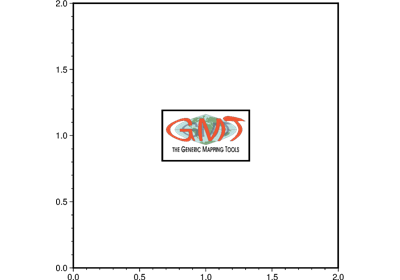pygmt.Figure.image¶
- Figure.image(imagefile, *, region=None, projection=None, position=None, box=None, monochrome=None, verbose=None, xshift=None, yshift=None, panel=None, perspective=None, transparency=None, **kwargs)¶
Place images or EPS files on maps.
Reads an Encapsulated PostScript file or a raster image file and plots it on a map.
Full option list at https://docs.generic-mapping-tools.org/latest/image.html
Aliases:
D = position
F = box
J = projection
M = monochrome
R = region
V = verbose
X = xshift
Y = yshift
c = panel
p = perspective
t = transparency
- Parameters
imagefile (str) – This must be an Encapsulated PostScript (EPS) file or a raster image. An EPS file must contain an appropriate BoundingBox. A raster file can have a depth of 1, 8, 24, or 32 bits and is read via GDAL. Note: If GDAL was not configured during GMT installation then only EPS files are supported.
projection (str) – Required if this is the first plot command. projcode[projparams/]width. Select map projection.
region (str or list) – Required if this is the first plot command. xmin/xmax/ymin/ymax[+r][+uunit]. Specify the region of interest.
position (str) – [g|j|J|n|x]refpoint+rdpi+w[-]width[/height][+jjustify][+nnx[/ny] ][+odx[/dy]]. Sets reference point on the map for the image.
box (bool or str) – [+cclearances][+gfill][+i[[gap/]pen]][+p[pen]][+r[radius]][+s[[dx/dy/][shade]]]. Without further arguments, draws a rectangular border around the image using MAP_FRAME_PEN.
monochrome (bool) – Convert color image to monochrome grayshades using the (television) YIQ-transformation.
Select verbosity level [Default is w], which modulates the messages written to stderr. Choose among 7 levels of verbosity:
q - Quiet, not even fatal error messages are produced
e - Error messages only
w - Warnings [Default]
t - Timings (report runtimes for time-intensive algorithms);
i - Informational messages (same as
verbose=True)c - Compatibility warnings
d - Debugging messages
xshift (str) – [a|c|f|r][xshift]. Shift plot origin in x-direction.
yshift (str) – [a|c|f|r][yshift]. Shift plot origin in y-direction. Full documentation is at https://docs.generic-mapping-tools.org/latest/gmt.html#xy-full.
panel (bool or int or list) – [row,col|index]. Selects a specific subplot panel. Only allowed when in subplot mode. Use
panel=Trueto advance to the next panel in the selected order. Instead of row,col you may also give a scalar value index which depends on the order you set viaautolabelwhen the subplot was defined. Note: row, col, and index all start at 0.perspective (list or str) – [x|y|z]azim[/elev[/zlevel]][+wlon0/lat0[/z0]][+vx0/y0]. Select perspective view and set the azimuth and elevation angle of the viewpoint. Default is [180, 90]. Full documentation is at https://docs.generic-mapping-tools.org/latest/gmt.html#perspective-full.
transparency (int or float) – Set transparency level, in [0-100] percent range. Default is 0, i.e., opaque. Only visible when PDF or raster format output is selected. Only the PNG format selection adds a transparency layer in the image (for further processing).
